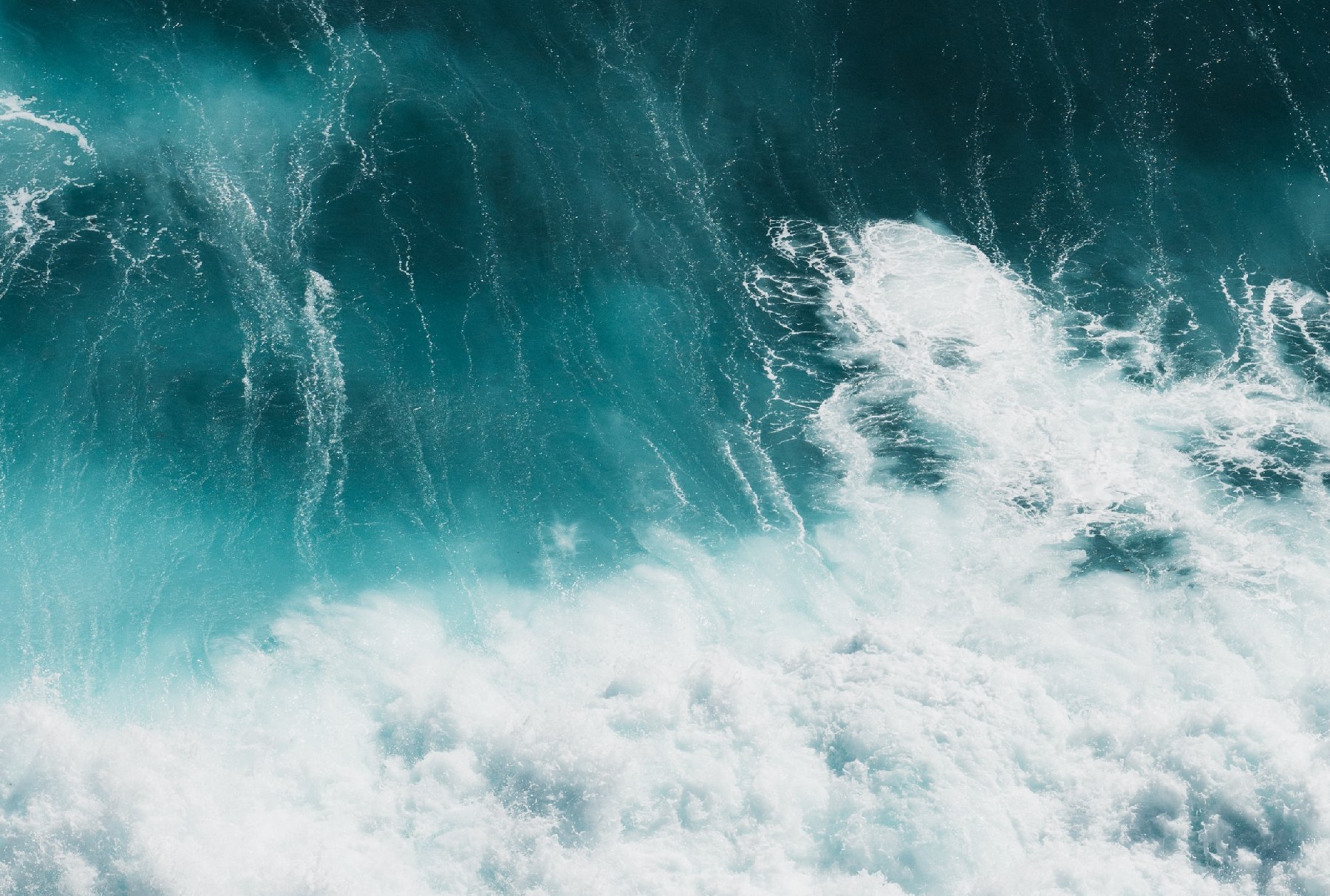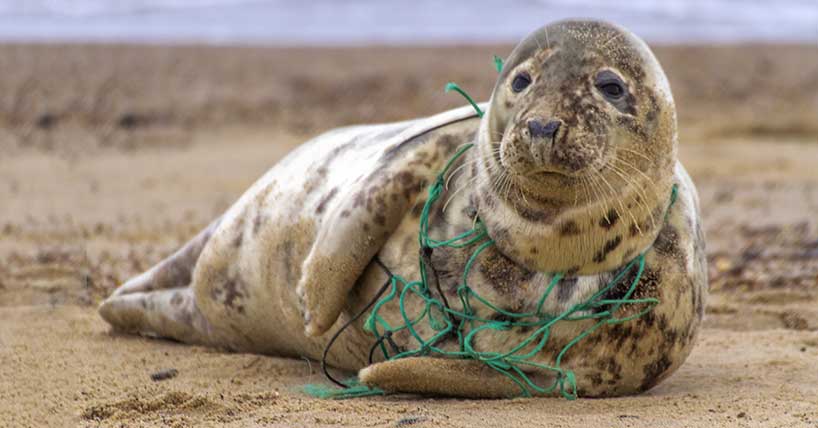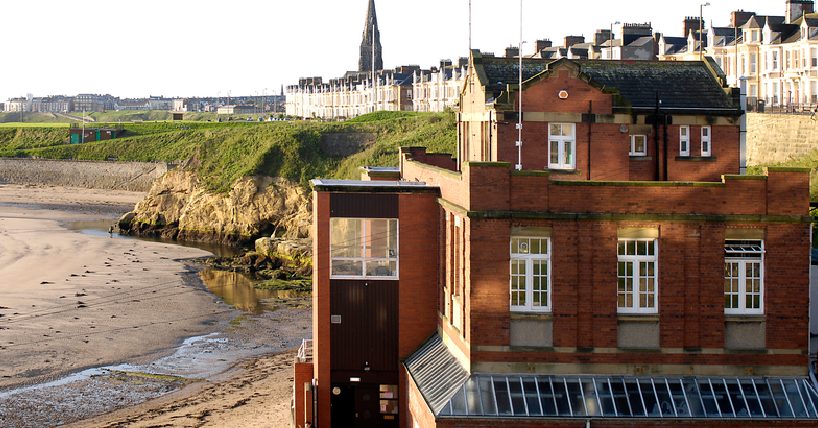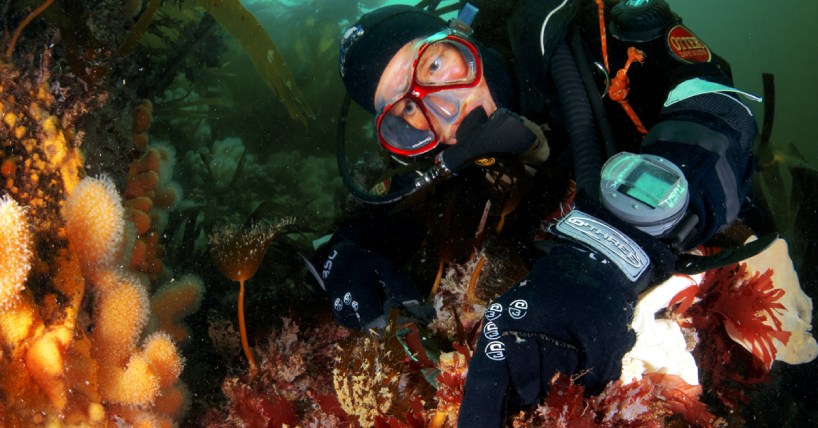Marine Postgraduate Research
Look at unanswered questions about protecting endangered species and habitats with our marine science research degrees. Investigate managing the ocean environment for future generations.
Research strengths
Our research spans organismal studies, large-scale processes, and management procedures. It falls into two broad areas:
- marine organisms and ecosystem research
- coastal processes and management
Our work with marine organisms and ecosystem research includes:
- gamete maturation and fertilisation biology of marine invertebrates
- chemical/physiological ecology of marine invertebrates
- reef ecology, especially trophodynamics, the structure and dynamics of marine food webs generally
Our coastal processes and management research looks at:
- effects of fishing and marine protected areas on benthic communities
- air-sea exchange of biogases, element cycling in oceans, gaseous tracer technology
Our research has uncovered man-made pollutants in the deepest corners of our planet.
How to apply for your PhD
We accept PhD and MPhil applications at any time during the year.
Either: Browse our pre-designed projects (go to step 6)
Or: Propose your own project - suggested topics are available on each subject page.
Step 1: Find and contact prospective supervisors.
Step 2: Write a research proposal. For chemistry applications, please add key words related to your research area.
Step 3: Check entry requirements and fees on our course pages. Potential funding options are also available.
Step 4: Apply via our online portal. You'll need to include the programme code, supervisor name and project or funding details if applicable
Step 5: Receive your offer – this will normally be a conditional offer.
Step 6: Accept your offer via the online portal.
Step 7: Send in any documents to meet the conditions and register!
You can only submit one application but this can be linked to multiple projects and studentships. You must specify this on the application form or in your cover letter.
If you’ve already submitted your application, you can link it to another project or studentship by sending an email to pgadmissions@ncl.ac.uk.
Contact us
If you need help with your application, you can email our team.
Email: snes.pgr.support@ncl.ac.uk
Find a supervisor
Before applying for a research degree, you’ll need to find a supervisor who aligns with your research interests.
To find a supervisor, we suggest that you:
- explore our research in marine science and learn more about our expertise
- browse our list of academic marine staff, and learn about their research interests, past publications, and ongoing projects
- choose a PhD research project from the below list
Dr Sara Marsham
Supervisor:Dr Sara Marsham
Projects:
I would be willing to discuss potential topics of research with interested applicants.
Key words: Intertidal ecology, bioscience education, pedagogic development
Professor Pip Moore
Supervisor: Professor Pip Moore
Projects:
- The structure, function and ecosystem services provided by marine vegetated habitats
- The drivers and impacts of marine heatwaves on shallow coastal ecosystems
- Nature-based and eco-engineering solutions for climate change mitigation and adaptation
Key words: Marine ecology, marine heatwaves, kelp forests, ecosystem functioning
Dr Ben Wigham
Supervisor: Dr Ben Wigham
Projects:
- Metallic tracers in larval and juvenile fishes
- Deep-water biodiversity of the Cape Verde Islands
- Reproductive biology of Antarctic marine invertebrates
- Non-lethal life-history impacts of microplastics on Antarctic marine invertebrates
Key words: Deep-sea; polar; food-web; reproduction
Dr Geoffrey Abbott
Supervisor: Dr Geoff Abbott
Projects:
- The analysis, identification and fate of microplastics from vehicular tyre wear.
The organic biogeochemistry of Arctic ocean sediments.
Molecular characterization of organic carbon in northern peatlands.
Key words: microplastics, soil, peatlands, Arctic, mass spectrometry



